COVER STORY
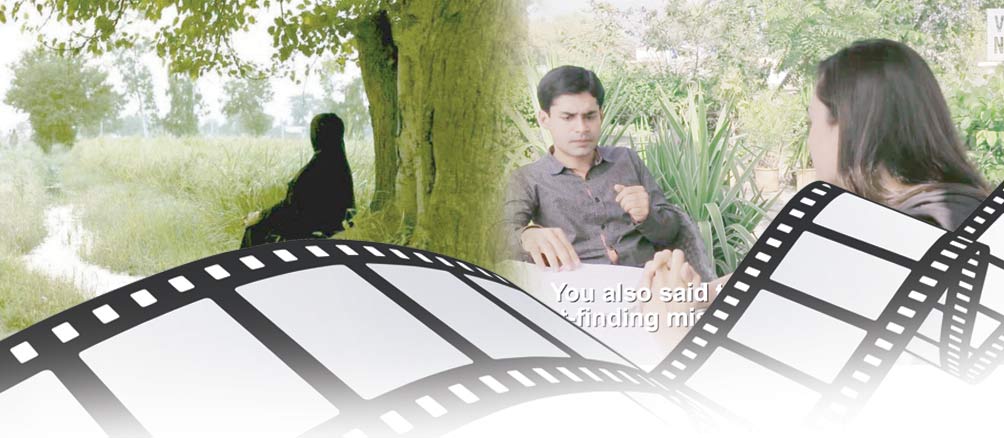
I wouldn’t say that the whole of Karachi was there - even apparently given the place was jam-packed. I wouldn’t bring up the fact that I noticed people of all ages attended the #KhiLF - even when I was irked by constantly bumping into little kids running around or impressed by elders, who, despite restricted ability and other factors, showed up with zeal and zest. I wouldn’t rant about how, for a literary fanatic such as me, Karachi Literature Festival has always had a special place in my heart.
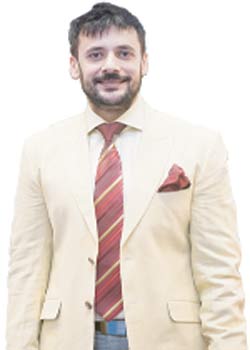
 Instead, I would mention what struck me out of the blue when I went to the Beach Luxury Hotel: it wasn’t the same as what I’ve been accustomed to attending in the past. For one, I wasn’t attending it with my friends anymore. While we did take it quite seriously than most others, it would not be wrong to label it an evening out otherwise either. So, this time around when meeting Nimra Bucha or Sania Saeed, for instance, was not something unexpected, but a well-processed act, and listening to Sharmeen Obaid-Chinoy was not just to get an autograph from them or a selfie with them, but to actually take notes about the kind of work they are doing, it would have been a folly to bet for #KhiLF ‘16 to not be a new experience. Simply because it was.
Instead, I would mention what struck me out of the blue when I went to the Beach Luxury Hotel: it wasn’t the same as what I’ve been accustomed to attending in the past. For one, I wasn’t attending it with my friends anymore. While we did take it quite seriously than most others, it would not be wrong to label it an evening out otherwise either. So, this time around when meeting Nimra Bucha or Sania Saeed, for instance, was not something unexpected, but a well-processed act, and listening to Sharmeen Obaid-Chinoy was not just to get an autograph from them or a selfie with them, but to actually take notes about the kind of work they are doing, it would have been a folly to bet for #KhiLF ‘16 to not be a new experience. Simply because it was.
This ‘change’ was an integral part of the two sessions I attended in the Main Garden on the second day of the 7th KLF: Pakistani Cinema Strikes Back and The Oscar Lady. Yes, star power was a major reason for me to be there. But, amidst everything ‘literary’, I think it’s been a long time that I wrote on the performing arts than touch on the rather serious politics and South Asian fiction sessions or review the comedy ones. Go ahead, ask me as to why I think it’s important stuff for our youth? Because, unfortunately, even in this age of advancement, some of us still view media and anything related to it - be it dramas, movies, documentaries - as inflicting negative influence on society. Yes, we are attention-seekers who’d love to see and hear themselves on TV, but wouldn’t let our children study it for fear of ‘no scope’ or ‘it’s against our religion’ let alone work in close association with it. Why then would Shanaz Ramzi, moderator to the Pakistani Cinema Strikes Back, welcome everyone gathered by echoing the same: “...the fact that you showed up in such great numbers shows that it really has struck back...”?
One of the speakers, Nadeem Mandviwalla, Chief Executive Mandviwalla Entertainment, took liberty to quote change of government policies (first in 2001 and then again in 2007) along with Indian cinema as contributing to this resurgence of Pakistani cinema. According to him, the humungous gap that we observe between old and new cinema is because “we never went through an evolution process; we stopped in the 70s and restarted in 2007.” The time it took to adjust the high rate that was being charged on entertainment duty affected the film industry in the way that “we had nothing to play” when rebuilding became actually feasible. Despite being the only choice left, those in the industry had little but to contest with the government to allow Indian movies to play if they were to keep people hopeful about our cinema since this was the popular demand at the time.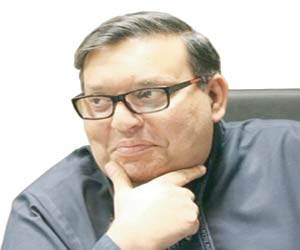
Having listened to this in favor of a now very-thriving industry, Hashim Raza, CEO Cinepax Cinemas, was next, encouraging individuals to look beyond the ‘deceptive’ number game. Urging them to not think whether they’re going to be “financially profitable”, the stress was intended for “passionate filmmakers to come back...[and] make quality cinema...to add to Pakistani heritage, to address some Pakistani issues through these films [like Moor, Shah, and Manto did]...apart from [feeling it their] social and moral obligation.” Adding his view on the subject and in including in the cost of advertising in the budget, Farjad Nabi, documentary maker, director, producer, and cinematographer, said that at present, “the power in the cinema market is lopsided”; on one side are the TV channels whereas on the other are the independent filmmakers who are not so supported.
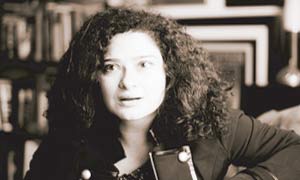 Veteran actor Sania Saeed interjected her views about TV actors venturing into cinema with “poori industry ko reconstruct karna para aur abhi poori tarha se hui bhi nahi hai.” She was blatantly honest about the whole process like her peers, agreeing that creating the sort of entertainment will cost money and time. Indeed, it will. But as she said, the best part is, everyone in the industry is supporting everyone else. Banking on the “unprecedented response to Manto and Moor”, she settled once and for all that we are ready for parallel cinema. It was heartening to hear her say it out loud and know that she definitely believes in a story that offers more than merely songs and dance. “Audience Moor and Zinda Bhaag bhi dekhna chahte hain to unke liye bhi to banna chahiye na cinema.” Hear, hear.
Veteran actor Sania Saeed interjected her views about TV actors venturing into cinema with “poori industry ko reconstruct karna para aur abhi poori tarha se hui bhi nahi hai.” She was blatantly honest about the whole process like her peers, agreeing that creating the sort of entertainment will cost money and time. Indeed, it will. But as she said, the best part is, everyone in the industry is supporting everyone else. Banking on the “unprecedented response to Manto and Moor”, she settled once and for all that we are ready for parallel cinema. It was heartening to hear her say it out loud and know that she definitely believes in a story that offers more than merely songs and dance. “Audience Moor and Zinda Bhaag bhi dekhna chahte hain to unke liye bhi to banna chahiye na cinema.” Hear, hear.
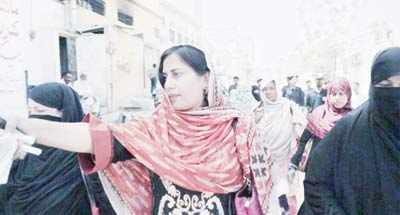
The need to experiment to get out of the nostalgic feels we’re gripped in and release films that are Pakistani in nature - “hamari apni story, apna music, apna maza” in the words of Nimra Bucha or, as Farjad Nabi said, “a new formula” - to treat our generation who has grown watching up Indian cinema was a recurring topic. It’s what Hashim Raza tells aspiring moviemakers separately: challenge yourself; movies don’t have to check all boxes like masala, etc. We need to stop lamenting about the ‘golden era’ and to stop thinking that we need something like that again to be deemed successful. What’s being played now is surely a sign of success, the one thing amiss is infrastructure in studio and then films will be made more easily.
When we talk of change, it’s hard to not refer to the objectification of women that’s rampant in dramas and films alike, most of which lack stories. Suffice it is to say that Nimra Bucha, a television and theater actor, considers it “a universal thing” and that the best one can manage[including herself] is to “not to succumb to it as an actor and hope there are no more filmmakers [who like it].” In times when cinema is suitable more for an evening out than “intellectual satiation”, Tipu Sharif holds his ground for films to be an easier medium of acting, more relaxing, compared to the small screens where you have don’t necessarily have enough time to learn and deliver.
Luckily, that’s not the end of it. And I’m speaking in a literal fashion here as I sat amongst some of worst of critics waiting their turn to find faults with the famous 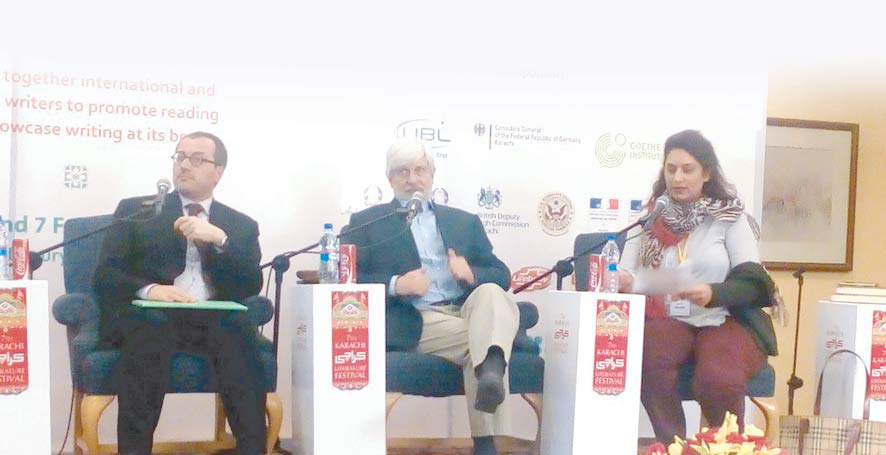
Academy Award winning filmmaker and journalist (did you know that? o.O ), Sharmeen Obaid-Chinoy, I knew there was more to the story. Recalling the incident that made her bloom into the person she’s today, she gave all credit to her father who, in the testing time, said “if you speak the truth, I will stand with you and the world will too.” There’s been no looking back for Sharmeen since. But what of the society she’s been accused to portray only the negative side of and, consequently, get paid for it abroad? Seven words: “Fix the problem; don’t shoot the messenger.”
She was clear about her work: “the voices of all people included in the films I make are affecting some sort of change in our society.”
The moderator’s remarks that her aspirations to be the first Academy Award-winning filmmaker (forgive the repetition) struck a chord with the guest speaker and the audience present. In fact, the first of the film trailers showcased in that program, A girl in the river: the price of forgiveness, is her second film to bag Oscar nominations. According to her, there’s no better way than to win the award to start a national discourse on topics she’s been investigating.
The film’s about honor killing; telling the story of a young woman who has been shot and thrown in the river by her father and uncle for having contracted a court marriage without her family’s consent, the film depicts how the girl survives instead of dying, as she was left to do. Chinoy appreciated the way the policeman in-charge of the situation had “made it his life’s mission” to find the criminals, which brought to the fore the extent to which the law in our country is warped up. The girl’s father was confident, he actually knew, that he was going to walk away out of this whole thing unscathed, stressing “meri to shaan aur bhi barh gai hai!” even as he was behind bars!
This is what Chinoy hopes will change, quoting Prime Minister Nawaz Sharif’s lauding comments and his pledge to rid Pakistan of this ‘evil’ (or, as she terms it, pre-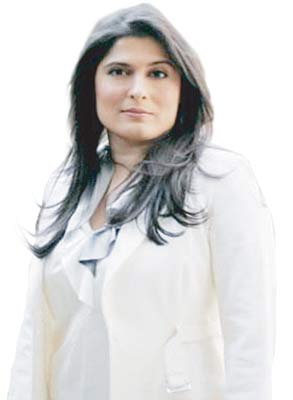
meditated murder) with ‘appropriate legislation’ (read ‘remove the forgiveness element from the law’). But then she was well-aware that the misinterpretation and implementation of laws regarding this sensitive topic were better dealt with in the Punjab (e.g. in Toba Tek Singh and Jhang) than they were in Sindh.
Sharmeen also discussed with Omar Aziz Saiyid projects like The Kohistan Story: Killing for Honor (another high-profile case in which nothing substantial transpired and the killers walked free); Song of Lahore (another great project on the Pakistani classical musicians of Sachal Studios, who are now working in collaboration with Meryl Streep, taking our culture to USA); Journey of a 1000 Miles (of Bangladeshi women acting on a ‘mission impossible’ as UN’s peacekeepers to Haiti following the 2010 earthquake); and I Heart Karachi (a unique project she holds dear with respect to the lives of five ordinary people in Karachi not everyone in town is familiar with).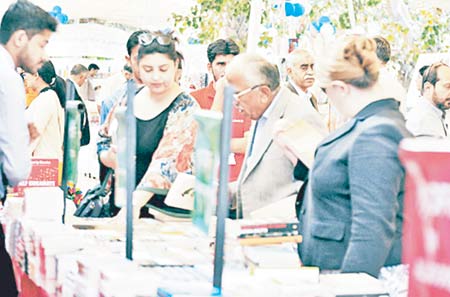
That’s like paying homage to the rich heritage, teaching us to not consider instrumental musicians as ‘merasi’, to encourage everyone to watch and see what they’re about. That’s like telling the world that Muslim women are definitely not the same individuals they have been stereotypically portrayed. That’s like inspiring us to achieve something extraordinary everyday of our lives like Naseem Akhtar managed with her group of women Polio workers, “who risk their lives for Rs. 250 a day to administer the drops and make Pakistan polio-free.”
Call the achievements as a move in the right direction, a step towards the bigger picture or as badges adorning her charismatic aura, whatever you may, Chinoy is determined to keep moving forward. She announced yet another project-in the-making, a documentary featuring a child who was targeted because she was going to school as a tribute to APS and BKU incidents, which is expected to be released in 2017.
Replying to a query put forward by a member of the audience, she said the men and women in her documentaries understand the risks involved and choose to come themselves; it’s not like she’s cashing in on the miseries of other people, saying it’s all for voicing a concern/cause. And contrary to the common perception that we have in mind, she has her own set of difficulties as a film-maker, the biggest one being the guilt of moving on in her life whereas the specific subject and their specific condition remains unchanged. But, in the end, if others can experience a different reality than the one we are accustomed to, it’s all worth it, right?
We have been hearing news about the revival of our entertainment industry and the change it entails for quite some time now. We have also read stories like ‘Say No to Child Marriage’ (January 22, 2016) when it comes to discussing this change in our society. These two sessions were somewhat of an eye-opener, similar to the rest of the sessions held that day. But would it be too bold a cry that Pakistanis in general and Karachiites in particular are getting the change they desire? Am I being too biased? Things are looking hopeful; how about we let time tell it all?